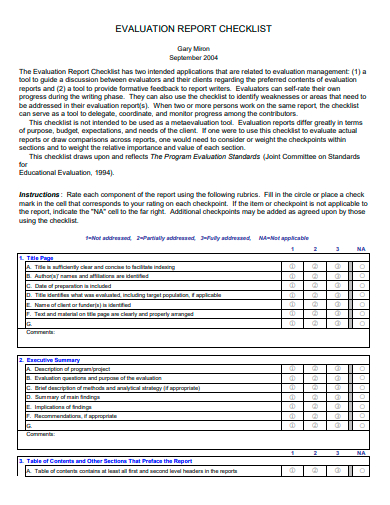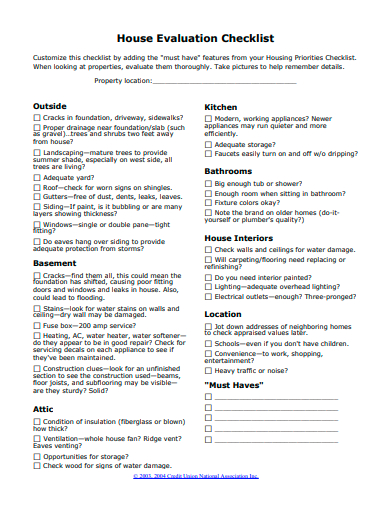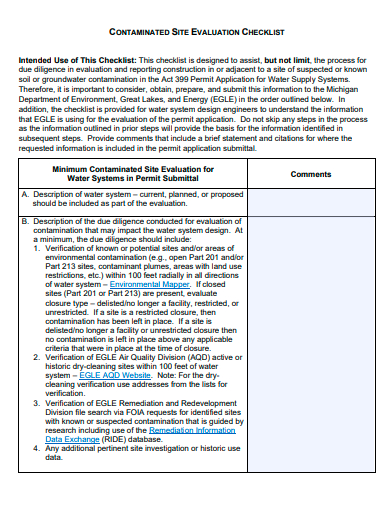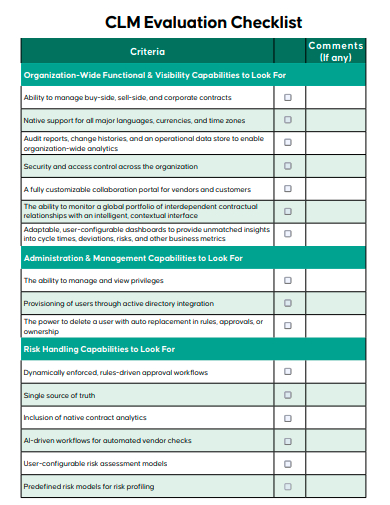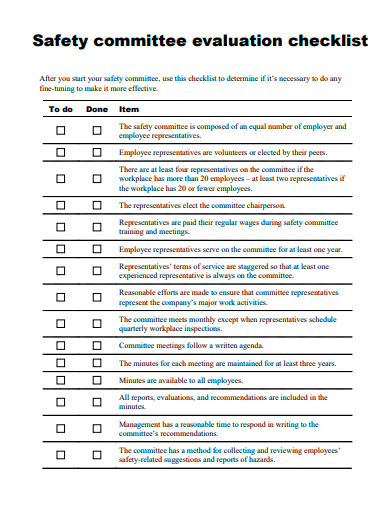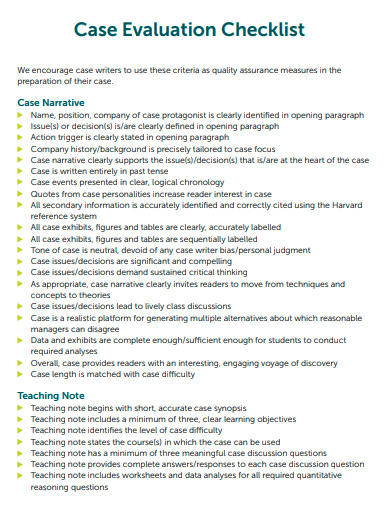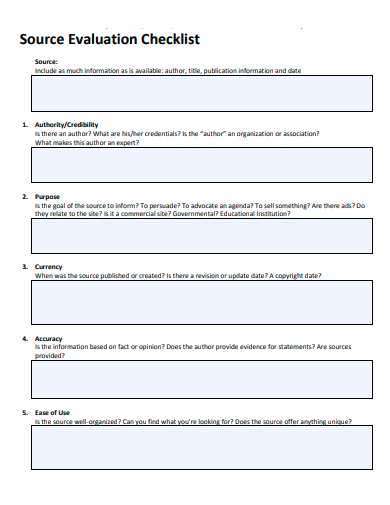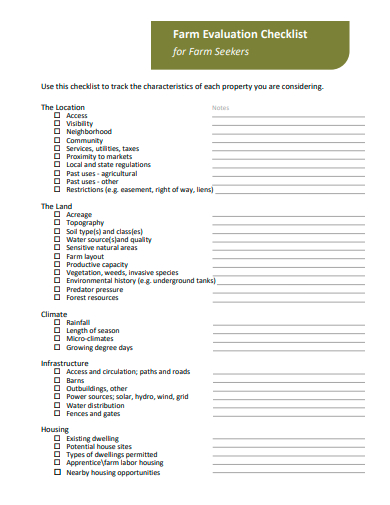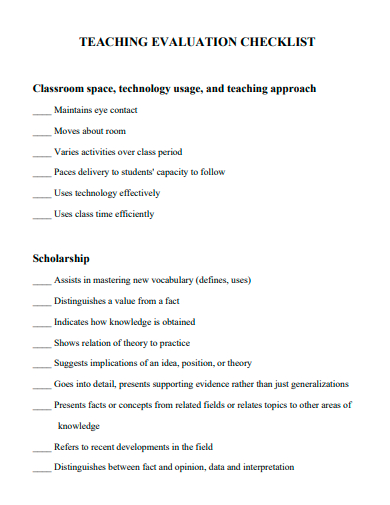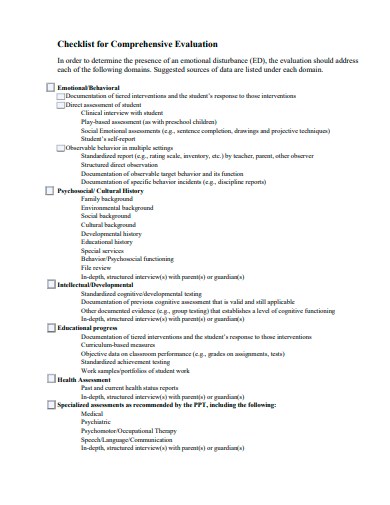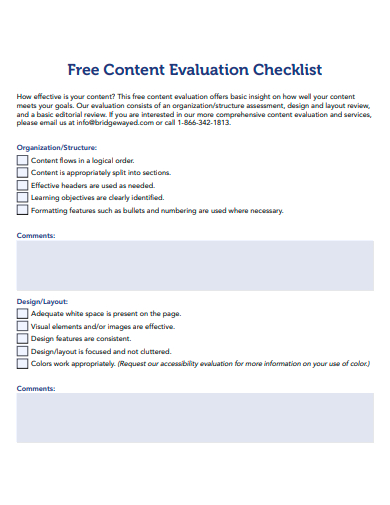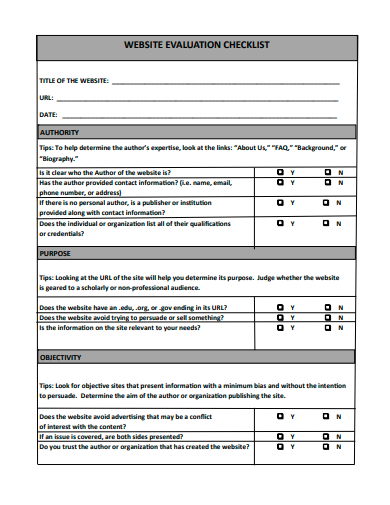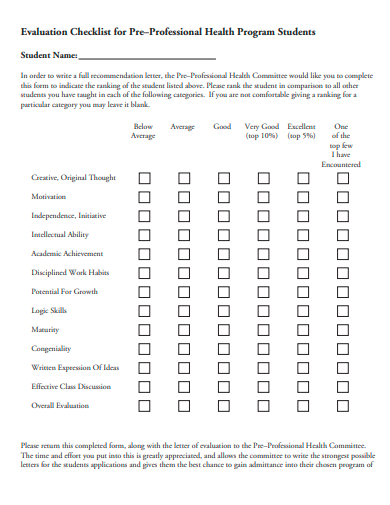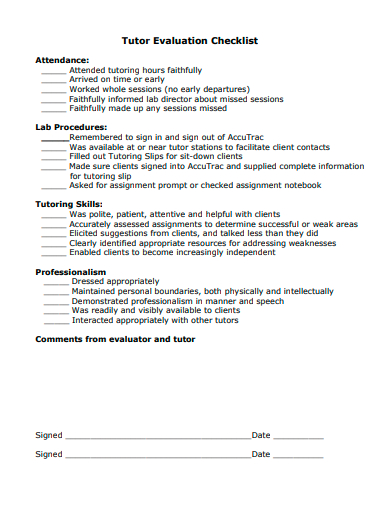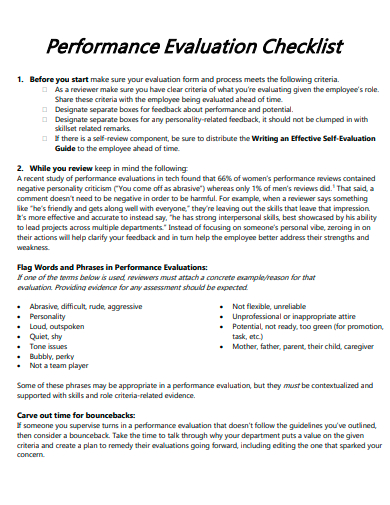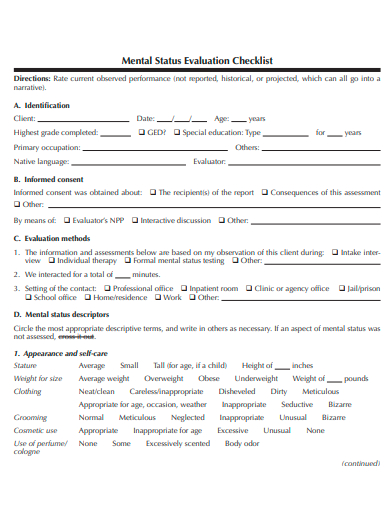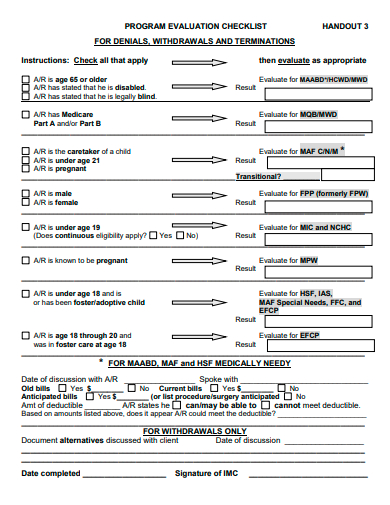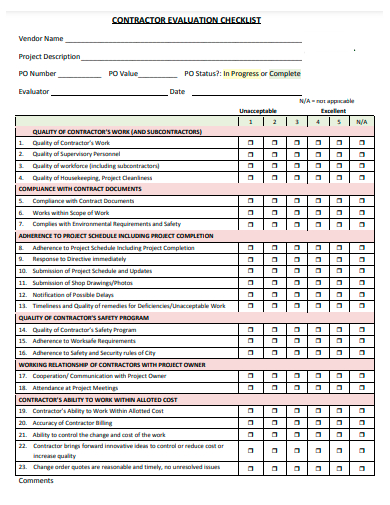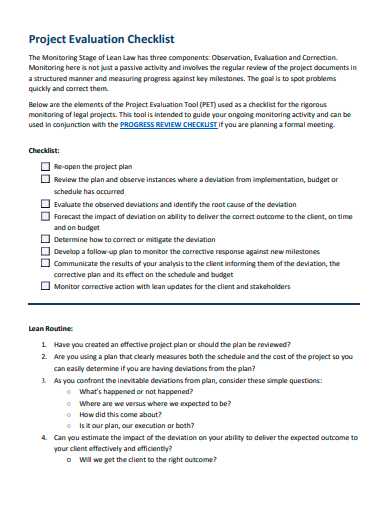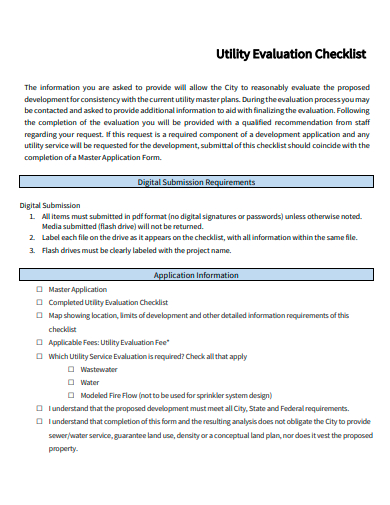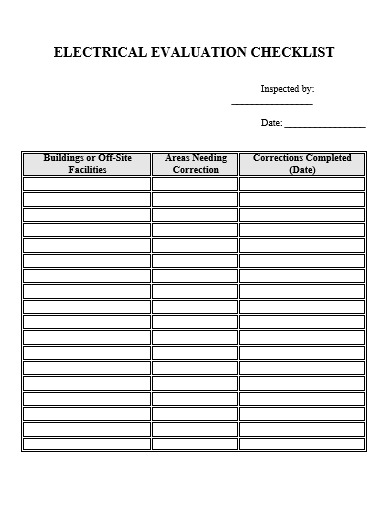Performance evaluation and quality of various aspects is essential for success. Whether it is a product, service, project samples, or even an individual’s performance, a comprehensive evaluation is crucial in making informed decisions and driving continuous improvement. An evaluation checklist serves as a valuable tool to ensure that all relevant factors are considered and assessed systematically. Evaluation checklists promote consistency and standardization in business evaluations. By defining clear criteria and indicators, they ensure that all relevant factors are considered uniformly. This minimizes subjective judgments and biases, enabling fair and objective assessments across different projects, process document, or departments. Consistency in evaluations facilitates effective comparisons, benchmarking, and identifying best practices within the organization.
20+ Evaluation Checklist Samples
1. Sample Evaluation Report Checklist Template
2. House Evaluation Checklist Template
3. Contaminated Site Evaluation Checklist Template
4. Evaluation Checklist Template
5. Safety Committee Evaluation Checklist Template
6. Case Evaluation Checklist Template
7. Source Evaluation Checklist Template
8. Farm Evaluation Checklist Template
9. Teaching Evaluation Checklist Template
10. Comprehensive Evaluation Checklist Template
11. Free Content Evaluation Checklist Template
12. Website Evaluation Checklist Template
13. Basic Evaluation Checklist Template
14. Tutor Evaluation Checklist Template
15. Performance Evaluation Checklist Template
16. Mental Status Evaluation Checklist Template
17. Program Evaluation Checklist Template
18. Contractor Evaluation Checklist Template
19. Project Evaluation Checklist Template
20. Utility Evaluation Checklist Template
21. Electrical Evaluation Checklist Template
What is Evaluation Checklist?
An evaluation checklist is a structured and systematic tool that consists of a list of criteria or indicators used to assess and measure the performance, quality control, or compliance of a specific subject or area. It serves as a guide for evaluators to ensure that all relevant factors are considered and assessed consistently and comprehensively. Evaluation checklists help provide a standardized and objective framework for evaluation, enabling the identification of strengths, weaknesses, and areas for improvement.
How To Make Evaluation Checklist?
Creating an effective evaluation checklist requires careful consideration of the specific subject or area being evaluated. Here are some steps to guide you in making an evaluation checklist:
Step 1- Define the Purpose and Objectives
Clearly identify the purpose of the evaluation and its objectives. What do you want to assess? What specific outcomes or criteria are important? This step will help you focus the evaluation and guide the development of the checklist.
Step 2- Identify Key Criteria and Indicators
Identify the key criteria and indicators that are relevant to the subject being evaluated. These criteria should be specific, measurable or SMART goals and aligned with the objectives of the evaluation. Consider factors such as performance metrics, quality standard operating procedure, compliance requirements gathering, customer satisfaction, or any other relevant aspects.
Step 3- Organize the Checklist
Organize the checklist in a logical and structured manner. Group related criteria together and create sections or categories to make it easier to navigate. Consider the flow of the evaluation process and arrange the checklist in a sequence that makes sense.
Step 4- Provide Clear Instructions
Include clear instructions at the beginning of the checklist to guide evaluators on how to use it effectively. Explain the purpose of each criterion and provide any necessary definitions or explanations. Clear instructions will help ensure consistency in evaluations and minimize confusion.
Why is an evaluation checklist important?
An evaluation checklist is important because it promotes consistency and standardization in evaluations, ensures a comprehensive assessment of various aspects, identifies strengths and weaknesses, facilitates informed decision-making, supports continuous improvement, and enhances accountability and performance measurement.
What should be included in an evaluation checklist?
An evaluation checklist should include clear objectives, well-defined criteria and indicators, a scoring or rating system, instructions for evaluators, space for notes or comments, and considerations for specific contextual factors. It should be tailored to the specific subject or area being evaluated.
Can evaluation checklists be customized for different purposes or industries?
Yes, evaluation checklists can be customized for different purposes, industries, or contexts. The criteria and indicators included in the checklist can be adapted to reflect the specific requirements, standards, or expectations of the particular domain or industry.
An evaluation checklist is a valuable tool that enhances the assessment process by ensuring a systematic, comprehensive, and consistent evaluation of various subjects. By including clear objectives, well-defined criteria, and appropriate data collection methods, a checklist facilitates unbiased assessments and supports informed decision-making. Its benefits extend beyond individual evaluations, fostering a culture of continuous improvement and promoting transparency and communication. Incorporating an evaluation checklist into various domains can lead to enhanced performance, improved quality, and increased success in today’s competitive landscape.
Related Posts
FREE 18+ Complaint Checklist Samples in MS Word | Google Sheets | PDF
FREE 18+ Internship Checklist Samples in MS Word | Google Docs | PDF
FREE 18+ Statement Checklist Samples in MS Word | Google Sheets | PDF
FREE 20+ Voluntary Checklist Samples in MS Word | Google Sheets | PDF
FREE 18+ Summary Checklist Samples in MS Word | Google Sheets | PDF
FREE 14+ Sponsorship Checklist Samples in MS Word | MS Excel | PDF
FREE 18+ Conference Checklist Samples in MS Word | Google Sheets | PDF
FREE 17+ Lesson Checklist Samples in MS Word | Google Sheets | PDF
FREE 18+ Progress Checklist Samples in MS Word | Google Docs | PDF
FREE 18+ Enrollment Checklist Samples in MS Word | Google Docs | PDF
FREE 18+ Graduation Checklist Samples in MS Word | Google Sheets | PDF
FREE 15+ Consent Checklist Samples in MS Word | Google Sheets | PDF
FREE 18+ Review Checklist Samples in MS Word | Apple Pages | PDF
FREE 18+ Submission Checklist Samples in MS Word | Google Docs | PDF
FREE 18+ Request Checklist Samples in MS Word | MS Excel | PDF

